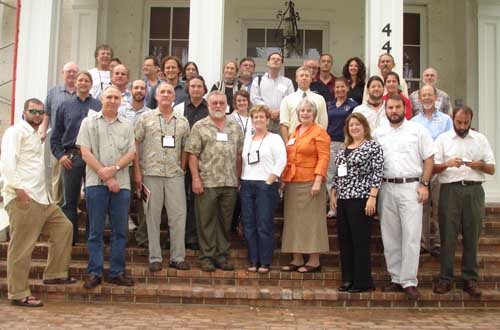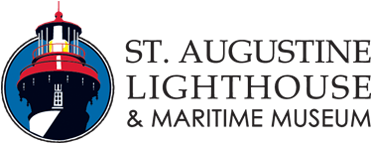Cortez is a tiny fishing village near Bradenton Beach, south of Tampa. Founded in the 1880s by watermen and fisher folk from North Carolina, this town is truly unique and hosts a vibrant maritime community. The maritime theme is explicit on the local landscape–I hadn’t spent five minutes in town before seeing rudders, anchors, buoys, nets, and other maritime paraphernalia prominently on display in front yards. This town, with its rich commercial fishing history and working waterfront, was a perfect place to host a conference on maritime heritage. In late October, Sam and I traveled to Cortez to attend this meeting, the first attempt in over 20 years to gather all of those parties interested in preserving Florida’s maritime past.
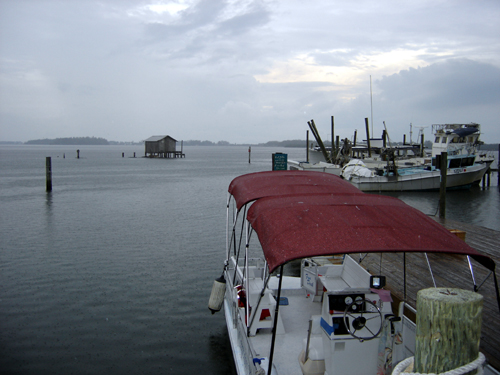
The conference was hosted by the Florida Maritime Museum at Cortez, and was organized in a very large part by our friend Jeff Moates, curator at the museum and a former LAMP archaeologist. The museum is housed in the old schoolhouse, built in 1912. It is currently being restored.
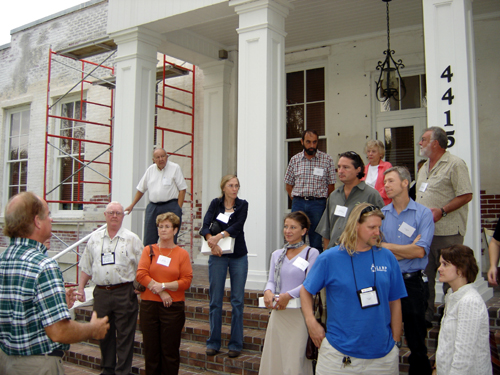
Upon our arrival, Jeff suggests we try lunch at the Star Fish Seafood House, located right on the water. We enjoy some of the fresh local fare–smoked mullet spread, fried grouper fingers, and a softshell crab sandwich–and meet some colorful local characters, including a transplanted fisherman named Sonny with some great stories.
Afterwards we meet at the museum for an introduction, and our hosts take us on a brief walking tour from the museum to an outlying building a few blocks away. The neighborhood is full of historic homes with tropical gardens and a distinctive stylistic flair, as seen in this front gate.
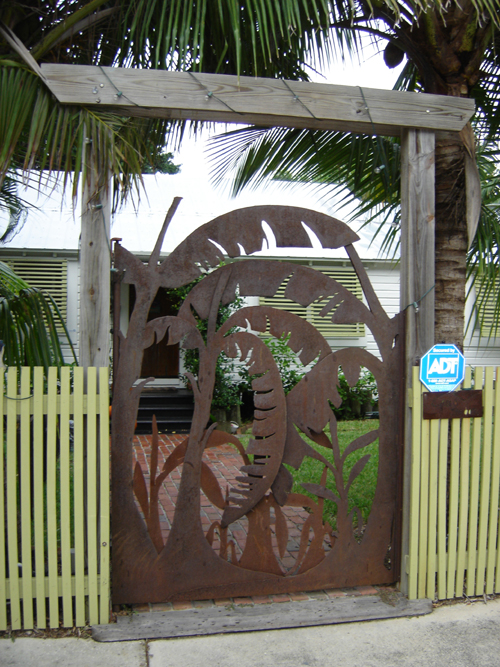
Our destination is the museum’s boatbuilding facility. The museum maintains a very active wooden boatbuilding program. Powered by volunteers and some skilled staff boatbuilders, this facility has produced a variety of traditional wooden boats–primarily vessels that were used for commercial fishing in these waters. They recently built a traditional lifeboat for the Lifesaving Station at Jacksonville Beach, my home town.
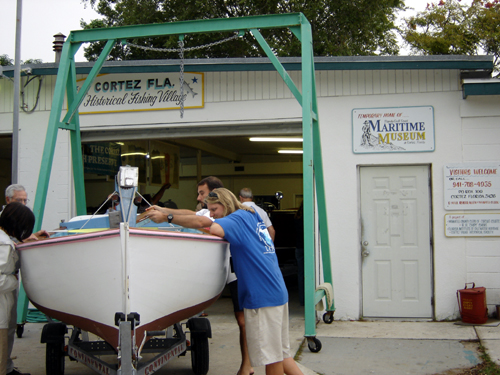
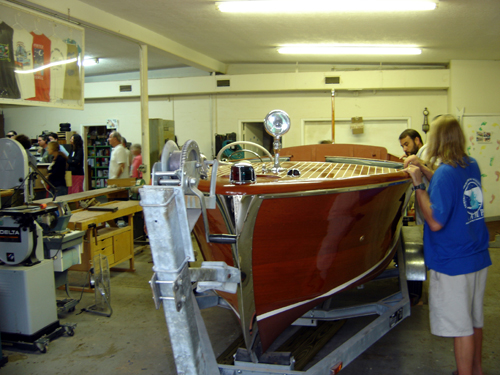
The following day we meet in the morning for the first session of papers. Here conference organizer Jeff Moates introduces the first speaker, renowned Florida archaeologist Barbara Purdy, whose paper is titled “Florida’s Maritime Heritage is the Heritage of Florida.”
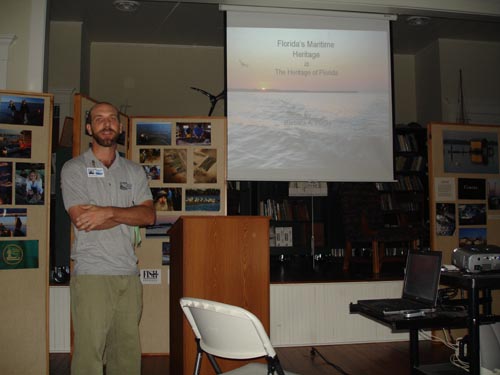
There are over 40 attendees, and we are treated to a wide variety of presentations from archaeologists, professors, museum professionals, historians, anthropologists, and shipboard educators. Sam, LAMP’s Director of Archaeology, gives a great talk on LAMP’s new boatbuilding program. A head count indicates that seven conference attendees are current or former LAMP employees, which I think is a great testament to the Lighthouse’s influence on maritime archaeology in the state of Florida.
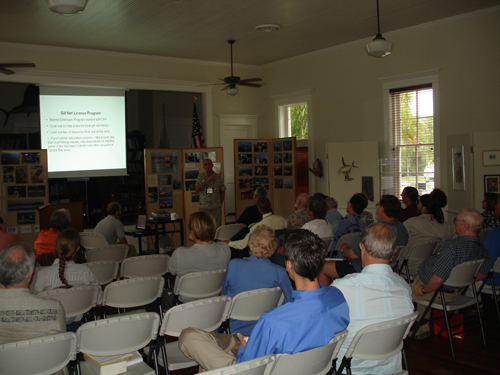
After the papers, we stroll down the street to a nearby boatyard to take a tour of the sailing ketch Galatea. This gaff-rigged ketch was recently purchased by an organization known as Aquarian Quest, which takes schoolkids on sailing cruises to learn about traditional seafaring and the marine environment. These guys were full of energy and they knew how to share it–they had the entire audience singing an old sea chantey during their presentation! Their ketch is currently undergoing a major re-built in Cortez, with the help of museum boatbuilders.
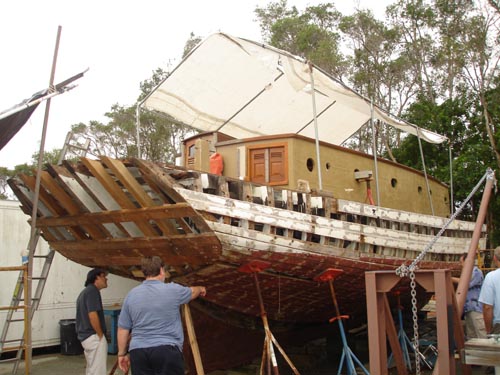
We get a great tour of the boat, inside and out. Here is Robin Moore, the County Archaeologist for St. Johns County, on the forward deck.
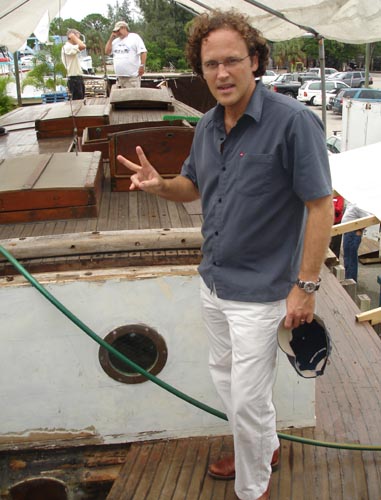
And here I am peeking out from between the vessel’s frames . . .
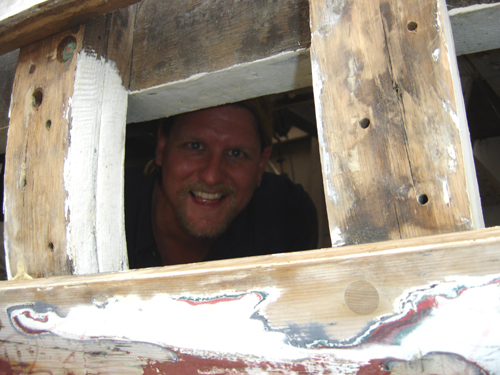
After we finally force ourselves away from the old vessel, it is not long before another waterfront pub finds a group of old archaeological friends. Seated from left to right, Dr. Sam Turner (LAMP), Greg Cook (University of West Florida), Dr. Amy Mitchell-Cook (UWF), Dr. Kira Kaufman (Florida Public Archaeology Network), Dr. Della Scott-Ireton (FPAN), Dr. Roger Smith (state Underwater Archaeologist), Jeff Moates (Florida Maritime Museum at Cortez), and Brian Adams (UWF).
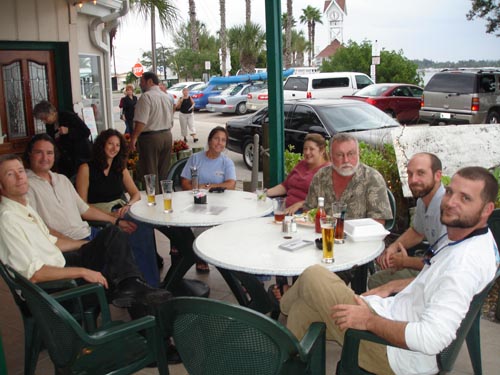
All in all, this was a fantastic weekend. Not only did we get to experience a little-known traditional Florida fishing community, and catch up with old friends, but we got to meet lots of other folks in the maritime heritage community. Its energizing to know that, just as we at LAMP and the St. Augustine Lighthouse are dedicated to preserving the story of our oldest port, there are lots of other groups are just as determined to save the histories of other sections of Florida’s waterways. With its extensive coastline dividing the Atlantic from the Caribbean and the Gulf, our state has one of the richest maritime histories of any other in the U.S. Yet until recently Florida’s maritime heritage has been grossly underappreciated, and there has been relatively little communication between many of us working in this field as archaeologists, historians, and museum professionals. Those of us attending this conference quickly saw the benefits of forming a network of communication and cooperation, and we voted to form a new alliance, the Florida Maritime Heritage Association. Our hosts in Cortez want to make sure that this year’s gathering is but the first of many, and they asked us if LAMP and the Lighthouse would sponsor the meeting next year. We’re proud to take up the mantle. See you all next year in St. Augustine!
